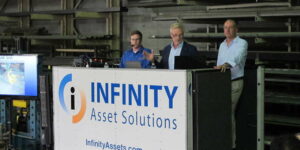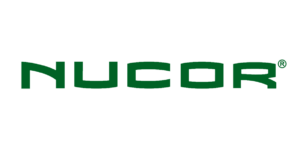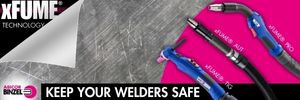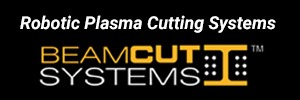2016 Aluminum Extrusion Design Award Winners
Winning entries included an electric motor housing used in a new type of heavy-duty truck powertrains, an industrial illuminator and viewing hood, and an arm support system for children with muscular degeneration.
Posted: June 10, 2016
The winners of the ET Foundation (Wauconda, IL) 2016 Aluminum Extrusion Design Competition were announced at the Eleventh International Aluminum Extrusion Technology Seminar & Exposition – ET ’16. Award-winning entries included an electric motor housing used in a new type of heavy-duty truck powertrains, an industrial illuminator and viewing hood, an arm support system for children with muscular degeneration, and more. The winning entries highlight how aluminum extrusions can provide versatile and cost-effective solutions to design challenges.
Professional designers, manufacturers and students were awarded a total of $12,000 in the 2016 competition. The awards, sponsored by Bonnell Aluminum (Newnan, GA), included prizes and scholarships in two classes: A Professional Class and Student Class. Some of the winning designers were in attendance at the General Session to receive recognition from the worldwide aluminum extrusion industry gathered in Chicago.
THE VERSATILITY OF EXTRUSIONS
William Davis of Wrightspeed Powertrains (San Jose, CA) and Rob Nelson of Almag Aluminum, Inc. (Brampton, ON, Canada) won the $3,500 Grand Prize/Transportation category for the Wrightspeed Route Electric Motor Housing made of a highly engineered aluminum extrusion. Currently in production in California, this grand prize-winning entry highlights many of the benefits of aluminum extrusion, including its lightweight design, incorporation of multiple features to eliminate downstream assembly, excellent heat transfer capabilities, and ease of fabrication, machining and assembly. The inner dimension of the large center hollow is honed to precisely fit the electric motor assembly, which includes a second profile bonded to the main extrusion using a structural adhesive to create a mounting feature.
The 20 hollows surrounding the part allow coolant to flow through the body of the housing, providing optimal cooling. “With coolant flowing through the 20 hollows, it was suggested that serrations were added to the inside diameters of the port for an additional surface area increase of 12 percent,” explained Nelson. “This also created a more turbulent flow, which contributed to more heat dissipation.” Small location tabs were incorporated into the body of the extrusion for assembly ease; the tabs also help with rotational shear stresses of the part, according to the designers.
The range-extended electric powertrain completely replaces the engine and transmission in an existing vehicle. Propulsion comes from powerful, high-torque electric motors, and batteries are replenished by an on-board turbine generator. Improvements as great as up to 67 percent reduction in fuel consumption, 63 percent reduction in emissions and up to $25,000 reduction in annual maintenance are claimed by the manufacturer. “This takes electric vehicles to another dimension with commercial application and aluminum extrusion is perfectly suited for the motor housing,” stated design competition judge David Asher, the process optimization manager for Bonnell Aluminum.
Michael Bankard, the mechanical products manager and research and development engineer for Quest-Tec Solutions (Houston, TX) won the $2,000 First Place prize in the Engineered Products category for the Illuminator and Viewing Hood Housing used in the company’s Steam-Trac direct reading bi-color ported steam/water gauge.The extruded aluminum assembly replaces a previous stainless steel design.
The use of a custom extruded assembly reduced manufacturing cost by 40 percent, according to the designer. “This product is used in conjunction with a steam/water level gauge that has a maximum operating temperature of 696 deg F,” explained Bankard. “Heat build-up is highly detrimental to the LED circuit boards used inside of the illuminator. The coefficient of thermal conductivity of aluminum is such that it dissipates heat far quicker than the prior stainless steel sheet metal enclosures. In addition, the extrusion allowed an increased surface area (cooling fins) to be added to the design at minimum expense.”
The new aluminum design reduces lead times from two to three weeks, down to two to three days, and reduced the number of welds from between 30 and 120 (depending on the size), with the stainless steel design to zero welds with the extruded aluminum assembly. “The extruded t-channels allow all parts to be quickly bolted together and also permits replacement of the aluminum side panels should they become damaged in the field.”
The extruded design has one more advantage. “Aesthetically, the prior design looked like something fabricated in someone’s garage,” added Bankard. “The new design with the aluminum extrusions (and some new investment castings) looks like a highly engineered product. Our sales people like that.”
STUDENT INGENUITY
A team of students from the University of Alabama at Huntsville (UAH), won First Place in the 2016 Aluminum Extrusion Design Competition – Student Class for their Design Certification Review project, “Dynamic Arm Support Apparatus (DASA)”. Students Aubree DeLozier, Christopher Sylvester, Stephon Giscombe, Rachel Hernandez, and Brad Clark will each receive an equal share of $3,000 First Place Student Scholarship prize. The DASA is a device that was designed for United Cerebral Palsy (UCP) of Huntsville to assist children, specifically for those younger than five-years-old, with limited arm strength due to muscular atrophy. The project was sponsored by the North Alabama Section of the American Society of Mechanical Engineers and Toyota.
The device is designed to be clamped to a wheel chair and will support the left forearm and the upper-tricep/bicep area of the arm as well, noted the students. The Dynamic Arm Support minimizes the forearm and upper arm strength used to oppose gravity, giving the child the ability to move the arm in multiple directions. Off-the-shelf 6105-T5 alloy aluminum extrusions were used in their project due to the lightweight and ease of fabrication inherent in the material and cross-section. The extruded slots allow for integration of sliding mechanisms.
The judges appreciated the students’ work and attention to detail, finding the overall professionalism and design review approach to the product development to be exemplary. “This application has great market potential,” noted Asher. “The healthcare market is a growing market for which products made with aluminum extrusions are ideally suited. In addition, this product would benefit from a custom extrusion design as opposed to the standard 80/20 shapes they chose to use.”
“We are so proud of our students,” said Christina Carmen, PhD, the students’ instructor at UAH Department of Mechanical and Aerospace Engineering. “This device is already being used by a four-year-old patient at United Cerebral Palsy and the extruded aluminum allowed for a durable yet lightweight design that will allow the therapist to easily transport the device during occupational therapy sessions.”
Zach Hellman, a sophomore industrial design student at Purdue University (West Lafayette, IN) won the Bonnell Aluminum LED Lighting Design Award. The award category was added to encourage students to think about aluminum extrusions as a holistic solution to a design problem. The category required students to utilize standard or custom extruded shapes, meet the four basic Design Competition criteria of creativity, practicality, product/process advantage and market impact/potential, and address technical aspects versus competing materials such as lightweighting, heat dissipation, reflectivity of aluminum, and more.
Hellman will receive a $2,500 scholarship award for his HUB LED light. The HUB “serves as the nerve of any construction site,” explained Hellman. “The design is focused on modularity and takes advantage of aluminum’s conductivity and heat dissipation properties. Integrated chargers and LED lighting ensure that critical tools are always at the ready.”
The HUB consists of an extruded aluminum LED light assembly, an extruded main frame, tables, legs and leg bracket. An extruded aluminum heat sink serves a dual purpose as the LED mounting rail and heat sink. “HUB is based on built-in functionality of aluminum extrusion. It uses a rail-based system to encourage modularity and expandability beyond what I have included in my design,” noted Hellman. “Despite the number of parts in this product, most can be made using the extrusion process.”
“This is a good overall design and functional for commercial and industrial applications,” said competition judge Todd Boyer, the director of sales and marketing for Mid-States Aluminum Corporation (Fond du Lac, WI).
Rupert Nuñez, a student studying engineering at Ronald Reagan High School (San Antonio, TX), received a special High School Award from the judges with a $1,000 Scholarship for his “Nuñez Off-Road Light Mount” design. “The Nuñez Off-Road Light Mount is built for heavy duty applications where durability, stability and extreme heat dissipation are necessary,” explained the student. He designed the light to accept most kinds of off-road vehicle LED lighting solutions using 6061 aluminum alloy “for strength and low production costs.”
To ensure the best heat dissipation and help cool the light, the body of the mount is hollow. The judges felt that the two-void hollow design is a practical extrusion and one that would be able to be developed for production. To enhance reflectivity Nuñez specifies clear bright dip anodizing. Repeatable, consistent quality of the extrusion process is another factor that the student cited for using aluminum extrusion in his design entry. The judges decided to present a special “High School” scholarship award to Nuñez because they were impressed with the amount of time and effort the student put into creating his design. “This is great for high school level,” stated Asher. “This is the type of creativity we’re hoping to see from students, including college-level students.”
The student Aluminum Extrusion Design Competition is held annually, while the professional competition is held every even-numbered year. For more details and to view the winning entries please click here. The ET Foundation will be inviting entries from students only for the 2017 International Aluminum Extrusion Design Competition. The Call for Entries for the 2017 Competition will be available in fall 2016.
The Extrusion Technology for Aluminum Profiles Foundation (ET Foundation) was established by the Aluminum Extruders Council (AEC) for charitable, scientific, and educational purposes to develop, promote, provide, and fund education and research related to aluminum extrusion processes and technologies. Through programs such as the International Aluminum Extrusion Design Competition and the International Aluminum Extrusion Technology Seminar and Exposition, the ET Foundation works to advance the knowledge and use of extruded aluminum profiles among academics, design and engineering professionals, as well as expand the expertise of aluminum extrusion industry professionals.
www.ETFdesign.org, www.AEC.org











